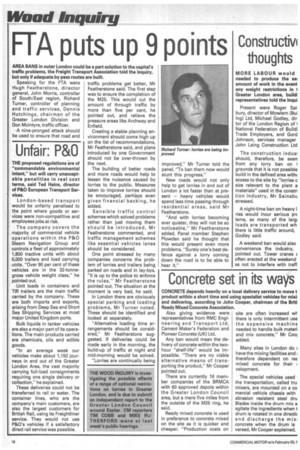Unfair: P&O
Page 12

If you've noticed an error in this article please click here to report it so we can fix it.
THE proposed regulations are of "commendable environmental intent," but will carry unacceptable penalities in real cost terms, said Ted Hains, director of P&O European Transport Services.
London-based transport would be unfairly penalised to the point where goods or services were non-competitive and employees jobs at risk.
The company covers the majority of commercial vehicle operations within the P&O Steam Navigation Group and controls a fleet of approximately 1,800 tractive units with about 6,000 trailers and load carrying units. "Over 90 per cent of these vehicles are in the 32-tonnegross vehicle weight class," he pointed out.
Unit loads in containers and TIR trailers are the main traffic carried by the company. These are both imports and exports, arising from Deep Sea and Short Sea Shipping Services at most major United Kingdom ports.
Bulk liquids in tanker vehicles are also a major part of its operations. The main products carried are chemicals, oils and edible goods.
"In an average week our vehicles make about 1,150 journeys in and out of the Greater London Area, the vast majority carrying full-load consignments requiring one single delivery or collection," he explained.
These deliveries could not be transferred to rail or water. The container lines, who are the company's main customers, are also the largest customers for British Rail, using its Freightliner service. They would not use P&O's vehicles if a satisfactory direct rail service was possible.


















































